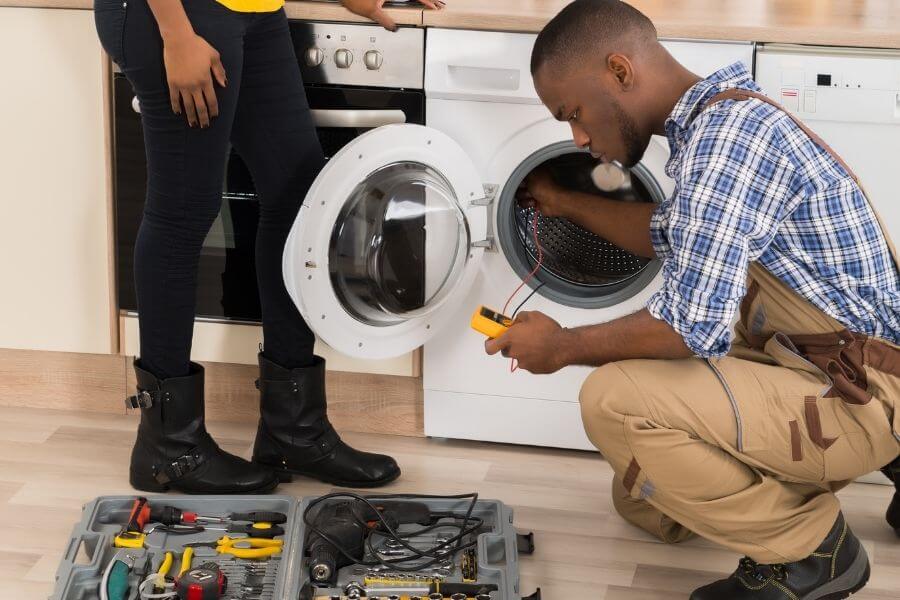The refrigerator is the unsung hero of the modern kitchen. It quietly hums away in the background, preserving our food and beverages, and often, we take it for granted until it suddenly stops working. When that happens, panic can set in, and the thought of spoiled groceries can be enough to send shivers down your spine. However, with a little knowledge about refrigerator services, you can keep your cool and ensure your fridge runs smoothly. In this article, we will unlock the secrets of refrigerator services and provide you with valuable insights to help you troubleshoot common problems and extend the life of your refrigerator.
Understanding the Basics
Before delving into specific refrigerator services and troubleshooting tips, it’s essential to have a basic understanding of how your refrigerator works. At its core, a refrigerator is a temperature-controlled environment designed to keep food and beverages fresh by removing heat from the inside and expelling it outside.
The primary components of a refrigerator include:
- Compressor: This is the heart of your refrigerator. It compresses and circulates refrigerant, a special fluid that absorbs heat, throughout the system.
- Condenser Coils: These coils are located at the back or bottom of the refrigerator and release the heat absorbed by the refrigerant.
- Evaporator Coils: Located inside the fridge or freezer, these coils help maintain the desired temperature by absorbing heat from the interior.
- Thermostat: The thermostat monitors the temperature inside the refrigerator and controls the compressor’s operation to maintain the desired level.
- Fans: Fans help circulate air throughout the fridge and freezer, ensuring even cooling.
- Defrost System: This system prevents the buildup of ice in the freezer by periodically heating the evaporator coils to melt any ice accumulation.
With this basic understanding in mind, let’s explore some common refrigerator issues and how to address them.
Troubleshooting Common Refrigerator Problems
- Temperature Fluctuations: If your refrigerator is not maintaining a consistent temperature, it can lead to food spoilage. Start by checking the thermostat settings and ensuring the doors seal properly. Dirty condenser coils can also cause temperature fluctuations, so clean them regularly.
- Excessive Frost Buildup: If you notice excessive frost in your freezer, it could indicate a problem with the defrost system. Check the defrost timer, heater, and thermostat for issues. Additionally, make sure the freezer door seals tightly.
- Water Leaks: A puddle of water around your refrigerator can be caused by a clogged defrost drain, a malfunctioning water inlet valve, or a blocked condensation line. Regularly clean and inspect these components to prevent leaks.
- Strange Noises: Unusual noises, such as clicking, buzzing, or rattling, can be a sign of a problem. These noises can result from a faulty compressor, a malfunctioning fan, or ice buildup. Consult a professional if you can’t identify the source of the noise.
- Fridge Not Cooling: If your refrigerator isn’t cooling properly, check the condenser coils for dirt and debris. Ensure proper ventilation around the fridge and clean the coils as needed. If the problem persists, it may be a refrigerant leak, which requires professional repair.
- Fridge Not Running: If your refrigerator is completely unresponsive, check the power source and the circuit breaker. If it’s still not working, consult a technician to diagnose and repair the issue.
Regular Maintenance Tips
Prevention is often the best solution to avoid costly refrigerator services. Here are some maintenance tips to keep your refrigerator running smoothly:
- Clean the Coils: Regularly clean the condenser coils to improve efficiency and prevent overheating.
- Keep the Door Seals Clean: Wipe down the door seals with warm, soapy water to ensure a tight seal.
- Avoid Overloading: Overloading your fridge can restrict airflow and cause temperature fluctuations. Maintain proper spacing between items for even cooling.
- Monitor the Temperature: Use a refrigerator thermometer to check the internal temperature regularly. It should be between 35°F and 38°F (1.7°C to 3.3°C).
- Inspect and Replace Gaskets: Check the door gaskets for wear and tear. If they are damaged, replace them to maintain a proper seal.
- Avoid Blocking Vents: Ensure that vents inside the fridge and freezer are not obstructed by food items.
- Check the Water Filter: If your fridge has a water and ice dispenser, replace the water filter as recommended by the manufacturer.
When to Call a Professional
While regular maintenance and troubleshooting can resolve many refrigerator issues, some problems require the expertise of a professional technician. Here are some signs that it’s time to call in the experts:
- Refrigerant Leak: Refrigerant leaks are hazardous and require specialized equipment to repair.
- Compressor Issues: If the compressor is malfunctioning, it’s best left to a professional to diagnose and fix.
- Electrical Problems: Any electrical issues should be handled by a trained technician to avoid safety hazards.
- Persistent Problems: If you’ve attempted troubleshooting multiple times without success, it’s time to seek professional help to avoid further damage.
In conclusion, understanding the basics of refrigerator services and performing regular maintenance can help you keep your cool and extend the lifespan of your refrigerator. By identifying common problems, troubleshooting, and knowing when to call a professional, you can ensure that your trusty kitchen companion continues to preserve your food and beverages effectively. So, don’t let refrigerator troubles spoil your day—take control and keep your fridge running smoothly.





